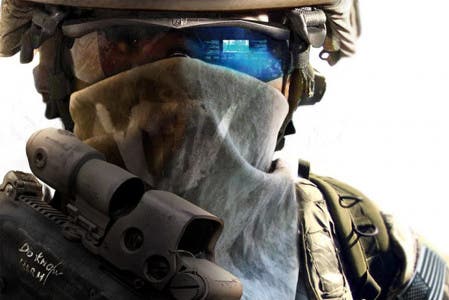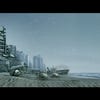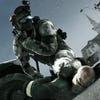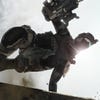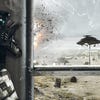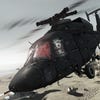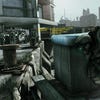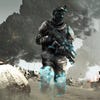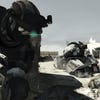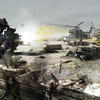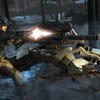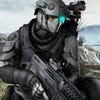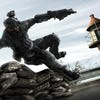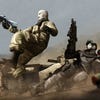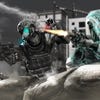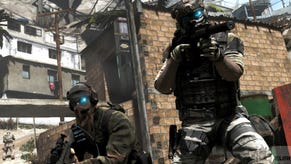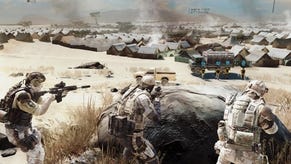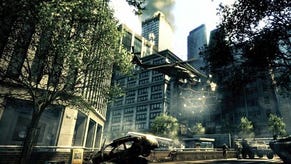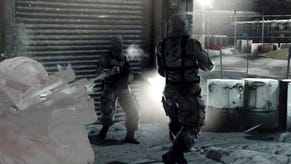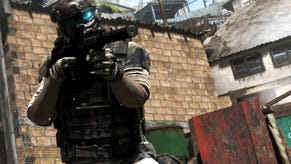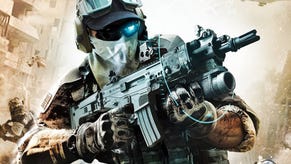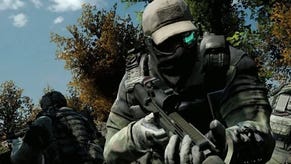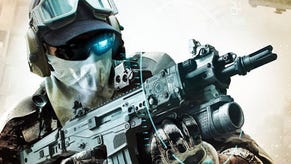Ghost Recon: Future Soldier Review
Techno prisoners.
Like it or not, Modern Warfare exerts a powerful gravitational pull on the games within its orbit - and, while the titles under the Tom Clancy brand may have started out as tactical simulations, they're not immune to the inexorable tug of Activision's super-dense star.
A couple of handheld spin-offs aside, the last time Ghost Recon saw the light of day was in 2007's Advanced Warfighter 2, and much has changed since then. All three Modern Warfare games have raised the blockbuster stakes where military bombast is concerned, while two Gears of War sequels have solidified and defined the template for third-person cover-based shooters. The fact Future Soldier takes more than a few cues from these commercial juggernauts is as inevitable as it is disappointing.
This influence manifests across both gameplay and storyline, with the narrative now following the obligatory quartet of wise-cracking soldiers - including such genre staples as Gruff Black Captain and Sarcastic Redneck - as they criss-cross the globe on the trail of yet more stolen nukes. Even as the action hops restlessly from South America to Africa, from Pakistan to the Arctic Circle, it spins a predictable tale, familiar from too many other shooters, culminating in the pursuit of rogue Russian hardliners with their eye on worldwide chaos.
There's even a mid-point terrorist attack on a major Western city, shown through tourist camcorder footage. Long and superfluous, it shows civilians cut to shreds by falling glass from a stricken skyscraper, using imagery that feels like it belongs in a Final Destination horror film, not a military shooter. It's crass and unnecessary, but sadly par for the course in a genre that can apparently no longer generate drama and momentum without cynically jabbing at our post-9/11 fears.
In gameplay terms, too, the grasping tendrils of blockbuster action make themselves felt. Gone is the squad management of old, as your AI companions now have a mind of their own and will find cover where they see fit, thank you very much. Despite this newfound wilfulness, they do avoid the trap fallen into by too many other shooters and almost always let the player lead the way, making you feel like the driving force rather than an obedient backup, forever trailing a little "follow" marker.
You do exert control over your team-mates when it comes to taking down the enemies in your path. When the game is in a more stealthy mood you can creep teasingly close to the enemy, thanks to Predator-style camouflage technology, and then mark targets for your squad to take down. They'll take up the best position automatically and then wait for your signal to fire. Even if you don't have line of sight, you can use the game's remote drone to hover over the battlefield and pick out targets.
It's in these moments that Future Soldier is at its best, extrapolating exciting uses of potential new military technology and harking back to the tactical challenge of old. Seeing the lines of fire pop up on your hi-tech HUD and hearing the soft thup of silenced rounds followed by crumpling bodies is a ghoulish pleasure that never gets tired over the campaign's substantial length.
But the lure of Call of Duty and Gears proves impossible to resist. Fantastically compelling and strategic stealth sections are bookended by slow-motion, door-breaching shooting galleries and mayhem-fuelled turret sections. You'll control a robot tank, launching mortars and missiles galore. There are escort sections where you're shielding rescued hostages from incoming fire, your arsenal reduced to a pistol, your freedom of movement severely limited. And, of course, there are large chunks of each level where you're simply ducking into cover and shooting away as you would in any other action game, lobbing frags and popping headshots.
Any cliché you can think of from the current shooter playbook gets an airing at some point. Worst of all, it never feels like the game's heart is behind the bombast. It's the sad sight of a series abandoning its own identity to follow the lucrative herd.
It's hard to make this criticism stick, though, because despite its generic tendencies, Future Soldier is never anything less than a very good third-person shooter. The combat mechanics are solid, the weapon set is varied and balanced, the enemy AI smart enough to make levels challenging. The use of cover is well considered. Levels are large, usually offering several approaches, and the moments where you feel crammed into a corridor are mercifully rare. Even the small things, such as the throwing range and splash damage of grenades, fall into the sweet spot you'd hope for. The game feels deeply satisfying.
It's just a shame that the game feels compelled to deviate from its strengths so often. Future Soldier is too often an excellent tactical stealth game forced to play at being a very good shooter, and that's an itch that is already scratched by dozens of other titles. There's a desperate need for more strategy and thought in the shooter field right now, and Ghost Recon should have been the series to supply it.
Thankfully, the same can't be said of the various online modes on offer. Ubisoft has a fine track record of incorporating multiplayer into its titles in a way that suits the game, and that streak continues here. Ghost Recon skews closer to norms than the likes of Splinter Cell and Assassin's Creed, but the fact that there's no sign of the words "deathmatch" or "capture the flag" still deserves praise.
Conflict is the main mode, offering a revolving array of objectives open to each team. Hold and defend is the most common requirement, but the battlefield feels impressively dynamic, with spawn points moving if one team is being dominated, while players are randomly designated as high-value targets or hacked by enemy tech. It's also to Ubisoft's credit that it's tilted the balance hard in the direction of team play. The measly points on offer for enemy kills pale alongside the generous numbers dished out for meeting objectives, and it's easy to spot the team made up of lone-wolf players weaned on deathmatch games: they're the ones losing by 700 points when the timer runs out.
Decoy is similar, but with three objectives in play at any time, only one of which is real. The concept demands even greater teamwork, as you're forced to split your forces and regroup rapidly. Saboteur plays out like a particularly violent football game, as both teams fight over a bomb, with the aim of planting it in the opposition's base. Siege, meanwhile, is perhaps the most hardcore and tactical of all, pitting entrenched defenders against well-armed attackers. The twist: no respawns. It's brutal and exhilarating, with no safety net.
All modes are playable across 10 maps, drawn from the campaign locations, and they're a naturalistic bunch. More in the vein of Battlefield's open-plan settings than the tightly controlled flow of a COD map, these are stages designed to be explored and learned, full of useful tricks and shortcuts that become evident through repeat play.
Player progression is decent enough, if unoriginal. There are three classes - Scout, Engineer and Rifleman - and each offers two upgradable characters, one for Team Ghost, the other for bad guys Team Bodark. New weapons, attachments and gadgets unlock at predetermined ranks, at which point they can be purchased using earned credits. It's a simple system, made notable for the sheer variety of customisation options - two million, according to the blurb. Tweaking your preferred weapon, right down to the type of trigger used, will provide a compelling meta-game for the devoted player.
There's co-op too, not least in the main campaign, which can be played with up to three friends. If the game's best moments impress when playing solo, they absolutely sing when played online. As before, it's the stealthier moments that stand out, with palpable tension as you creep around, taking up positions and co-ordinating your shots. It's here where the hereditary genes of Red Storm's classic Rainbow Six can be seen most clearly.
There's also a survival mode, called Guerrilla. The meat of it is much as you expect - hold a position on the map against encroaching enemies - but Ubisoft has managed to squeeze a little of the franchise's unique style in between the waves of mayhem, offering little pockets of stealth where your team must secure the area by removing an existing enemy presence as discreetly as possible.
There will be some who look at the mainstream concessions made in Ghost Recon's belated comeback, regenerating health and all, and despair. Such reactions won't be completely baseless. Future Soldier is not as smart as it could be and there's clearly a more distinctive game hiding behind all the second-hand bombast. But while Future Soldier risks losing itself in the crowd of similar widescreen War on Terror blockbusters, it at least borrows its elements wisely, serves them up with style and polish, and retains enough of its strategic core to make it an easy recommendation for those hungry for another tour of duty.
